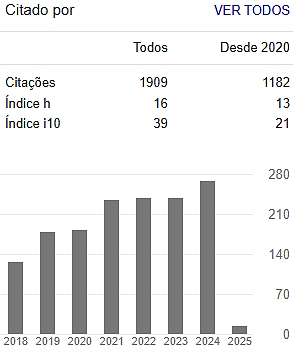Territories of Environmental Education: a summary of strategies and educational experiences from Computer Reconditioning Centers
Keywords:
Environmental Education, Territory, Social change, Democratization of knowledgeAbstract
This paper aims to present the results of a study about the strategies and experiences of Environmental Education carried out by Computer Reconditioning Centers (CRC) of the Computers for Inclusion Program, focusing on their relationship with space. The research, qualitative in nature and exploratory-descriptive in purpose, had as its main methodological procedure the documentary research. The analyses were carried out in two stages. The first one, of approximation to the object of research, occurred through the adaptation of the cartography of Environmental Education currents proposed by Lucie Sauvé. The second took as categories of analysis references from Miltonian geography and the bibliography on Educating Cities, seeking to compose a theoretical and methodological framework that would allow us to understand the relationship that the CRC establish with the different territories where they operate. From the systematization exercises carried out, it was possible to identify and describe the different approaches to Environmental Education carried out by the CRC. The intentionalities and actions expressed articulate two major challenges: the action of the CRC on socio-spatial inequalities and the confrontation that these centers make against the logic of socio-digital exclusion. Environmental Education, as a field of knowledge and a field of educational action in contemporary Brazil, needs to deal with exclusion processes engendered in the technical-scientific-informational environment by a logic of production that is not at the service of life. Through different strategies, the Environmental Education actions in the CRC invite young and adult people to take ownership of learning, knowledge, and spaces, giving new meaning to their territories.

